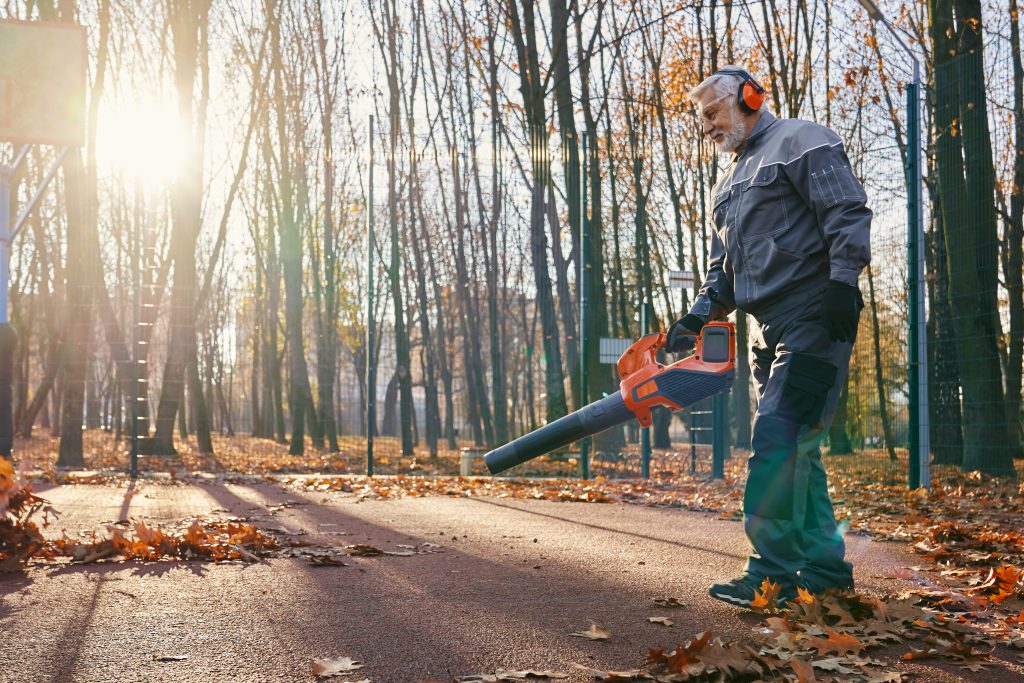THE DANGERS OF NOT HIRING LICENSED AND INSURED TREE SERVICE COMPANIES
Proper tree care is of utmost importance for a variety of reasons, ranging from environmental sustainability to personal safety. Trees provide numerous benefits to both ecosystems and human communities, and maintaining their health and well-being through proper care is essential for these reasons:

1. Ecosystem Health: Trees are integral components of ecosystems, providing habitat and sustenance for a wide range of flora and fauna. Proper tree care ensures the preservation of biodiversity by creating healthy environments for various species to thrive.
2. Air Quality Improvement: Trees play a vital role in maintaining air quality by absorbing carbon dioxide and releasing oxygen through photosynthesis. Healthy trees help mitigate the effects of air pollution and contribute to cleaner, more breathable air.
3. Climate Change Mitigation: Trees act as carbon sinks, absorbing carbon dioxide from the atmosphere and helping to regulate global temperatures. Well-maintained trees and forests play a crucial role in mitigating the impacts of climate change by storing carbon.
4. Water Regulation: Trees play a significant role in regulating the water cycle. Their roots help prevent soil erosion, and their presence promotes water absorption and groundwater recharge. Proper tree care contributes to better water quality and reduced risk of floods.
5. Aesthetic and Recreational Value: Trees enhance the beauty of landscapes, making them visually appealing and contributing to a sense of well-being. Parks, green spaces, and tree-lined streets provide areas for recreation, relaxation, and community engagement.
6. Wildlife Habitat: Trees provide shelter, nesting sites, and food sources for various wildlife species, from birds and insects to mammals. Proper tree care helps maintain these habitats and supports local ecosystems.
7. Property Value: Well-maintained trees can significantly increase property values. Trees provide shade, improve curb appeal, and create a more pleasant environment, making properties more attractive to potential buyers or tenants.
8. Public Health: Trees contribute to improved public health by reducing stress, enhancing mental well-being, and providing spaces for physical activity. Access to nature and green spaces has been linked to lower levels of stress, anxiety, and depression.
9. Cooling Effect: Trees provide natural shade and cooling effects, particularly in urban areas. This can help reduce the urban heat island effect, where cities become significantly warmer than surrounding rural areas.
10. Soil Conservation: Tree roots help stabilize soil, preventing erosion and maintaining soil structure. Healthy trees contribute to soil fertility and prevent sediment runoff into water bodies.
11. Cultural and Historical Significance: Trees often hold cultural and historical value for communities. They can represent heritage, traditions, and memories, making them important symbols within societies.
12. Educational Opportunities: Trees offer valuable educational opportunities. Studying tree growth, biology, and environmental interactions can enhance our understanding of ecosystems and foster environmental awareness.
13. Long-Term Sustainability: Proper tree care contributes to the long-term sustainability of landscapes, ecosystems, and communities. By maintaining healthy trees, we ensure that future generations can continue to enjoy the benefits they provide.
Importance of informed decision-making when choosing tree service providers
Informed decision-making when choosing tree service providers is crucial due to several significant reasons that directly impact the well-being of trees, property, and personal safety. Here’s an explanation of the importance of making informed choices in this regard:

1. Tree Health and Longevity: Trees require specialized care to maintain their health and longevity. Hiring a knowledgeable and experienced tree service provider ensures that proper pruning, disease management, and other care practices are implemented, promoting the overall well-being of trees.
2. Preventing Damage: Inadequate tree care can result in irreparable damage to trees and property. An informed decision in selecting a reputable tree service provider minimizes the risk of incorrect pruning techniques or improper handling, which can cause structural damage or even lead to the death of trees.
3. Safety of Personnel and Property: Tree work involves inherent risks, both to the workers and the surrounding property. Licensed and experienced providers prioritize safety protocols, reducing the likelihood of accidents, property damage, and personal injuries during tree care operations.
4. Quality of Work: Informed decision-making ensures that you engage with professionals who possess the necessary skills and training to perform tree care tasks effectively. Proper trimming, pruning, and other treatments improve tree aesthetics, growth, and structural integrity.
5. Legal and Regulatory Compliance: Choosing a licensed tree service provider ensures that they adhere to local regulations and permits required for tree work. This prevents legal issues and project delays that can arise from non-compliance.
6. Insurance Coverage: Reputable tree service providers carry liability insurance and workers’ compensation coverage. This safeguards you from potential financial liabilities in case of accidents or property damage during tree care operations.
7. Transparent Communication: Informed providers communicate openly and transparently about the scope of work, timelines, and costs. This eliminates surprises and ensures that both parties have clear expectations.
8. Customer Reviews and Reputation: An informed decision takes into account the provider’s reputation and customer reviews. This feedback reflects the quality of their work and customer satisfaction, helping you make a more accurate assessment of their professionalism.
9. Value for Money: Quality tree care may require an investment, but it is cost-effective in the long run. Informed decision-making helps you choose providers who offer fair pricing for high-quality services, saving you from potential extra costs due to poor workmanship.
10. Environmental Responsibility: Knowledgeable tree service providers prioritize environmentally responsible practices. They can advise on eco-friendly solutions, such as composting or mulching, and help maintain the health of trees within the context of broader ecological considerations.
11. Avoiding Scams: Informed decision-making protects you from fraudulent or unscrupulous individuals posing as legitimate tree service providers. Being aware of common scams ensures that you don’t fall victim to dishonest practices.
12. Personal Well-Being: The peace of mind that comes from knowing you’ve hired a qualified and reputable tree service provider cannot be understated. It eliminates stress and worry about the safety of your property, trees, and the professionals performing the work.
Importance of Licensing and Insurance
Licensing and insurance are of paramount importance, especially when it comes to hiring professionals such as tree service providers. They serve as crucial indicators of professionalism, accountability, and safety. Here’s an explanation of why licensing and insurance are so vital:
Licensing:
1. Expertise and Qualification: A license demonstrates that the tree service provider has met certain standards of expertise, training, and knowledge in their field. It indicates that they possess the necessary skills to perform tree care tasks correctly and safely.
2. Regulatory Compliance: Licensing often requires adherence to local regulations, codes, and industry standards. Hiring a licensed provider ensures that the work is conducted in accordance with legal requirements, preventing potential legal issues.
3. Ethical Conduct: Licensed professionals are more likely to uphold ethical standards and follow industry best practices. They are accountable for their actions and are less likely to engage in fraudulent or unethical behavior.
4. Accountability: In case of disputes or dissatisfaction with the services provided, a licensed provider can be held accountable by relevant regulatory bodies or licensing agencies. This accountability promotes customer protection.
5. Continuous Learning: Licensed professionals often need to renew their licenses periodically. This requirement encourages ongoing education and training, ensuring that providers stay up-to-date with the latest techniques and advancements in the field.
Insurance:
1. Financial Protection: Insurance provides financial coverage for accidents, injuries, and property damage that may occur during tree care operations. Without insurance, you could be held liable for medical bills, repairs, or legal costs.
2. Worker Safety: For providers who have workers’ compensation insurance, their employees are covered in case of work-related injuries. This alleviates the potential burden of medical expenses and legal claims for injuries sustained on your property.
3. Property Protection: Accidents happen, and even skilled professionals can make mistakes. With liability insurance, any damage to your property caused during tree care will be covered, ensuring you’re not left with repair costs.
4. Peace of Mind: Hiring an insured provider provides peace of mind. You can focus on the project at hand without worrying about unexpected expenses or liabilities that could arise from accidents.
5. Professionalism: A provider with insurance demonstrates professionalism and a commitment to responsible business practices. It shows that they take their work seriously and are willing to invest in protecting their clients and employees.
6. Project Completion: In some cases, a contract with insurance coverage can include provisions that ensure the completion of the project, even if unexpected issues arise.
Risks of Hiring Unlicensed Tree Service Companies
Hiring unlicensed tree service companies poses several significant risks that can negatively impact your property, the environment, and your overall well-being. Here are the potential risks associated with hiring unlicensed tree service companies:
1. Inadequate Expertise: Unlicensed companies may lack the necessary expertise, training, and knowledge required for proper tree care. This can result in incorrect pruning techniques, improper tree removal, and other subpar practices that can compromise the health and structural integrity of your trees.
2. Substandard Workmanship: Without proper training and licensing, unlicensed companies might perform substandard work. This could lead to poorly executed tree care tasks, leaving you with unsightly trees, increased susceptibility to diseases, and potential long-term issues.
3. Safety Hazards: Tree work involves inherent risks. Unlicensed providers may not follow industry safety standards, increasing the likelihood of accidents, injuries, or property damage during tree care operations. This places both the workers and your property at risk.
4. Property Damage: Inexperienced tree service providers may inadvertently damage your property or neighboring properties while performing tree care tasks. This could include property structures, utility lines, fences, and landscaping, leading to costly repairs and disputes.
5. Environmental Impact: Improper tree care can have negative consequences for the environment. Unlicensed companies may use harmful chemicals or practices that negatively affect soil health, water quality, and local ecosystems.
6. Legal and Regulatory Issues: Hiring unlicensed companies might lead to legal and regulatory problems. Local regulations often require tree care providers to be licensed to operate. Engaging with unlicensed providers could result in fines or legal actions.
7. No Recourse for Issues: When working with unlicensed providers, you might have limited recourse if the work is unsatisfactory, causes damage, or poses safety risks. Unlicensed companies are less likely to uphold warranties, guarantees, or resolve disputes.
8. Lack of Insurance Coverage: Unlicensed providers are less likely to carry liability insurance and workers’ compensation coverage. This means that if accidents or property damage occur during the project, you could be held financially responsible.
9. Unethical Practices: Unlicensed providers may engage in unethical practices, such as overcharging, misleading advertising, or providing false information. Engaging with such providers can lead to financial losses and disappointment.
10. Hidden Costs: Hiring an unlicensed provider might initially seem cheaper, but the hidden costs associated with poor-quality work, additional repairs, or addressing issues can end up costing you more in the long run.
11. Quality of Tools and Equipment: Unlicensed providers might not have access to the proper tools and equipment needed for safe and efficient tree care. This can lead to delays, inefficient work, and increased risks during operations.
12. Lack of Accountability: Unlicensed providers may lack accountability for their actions. With no regulatory body overseeing their work, you might face challenges in holding them responsible for subpar or damaging practices.


Comments are closed.